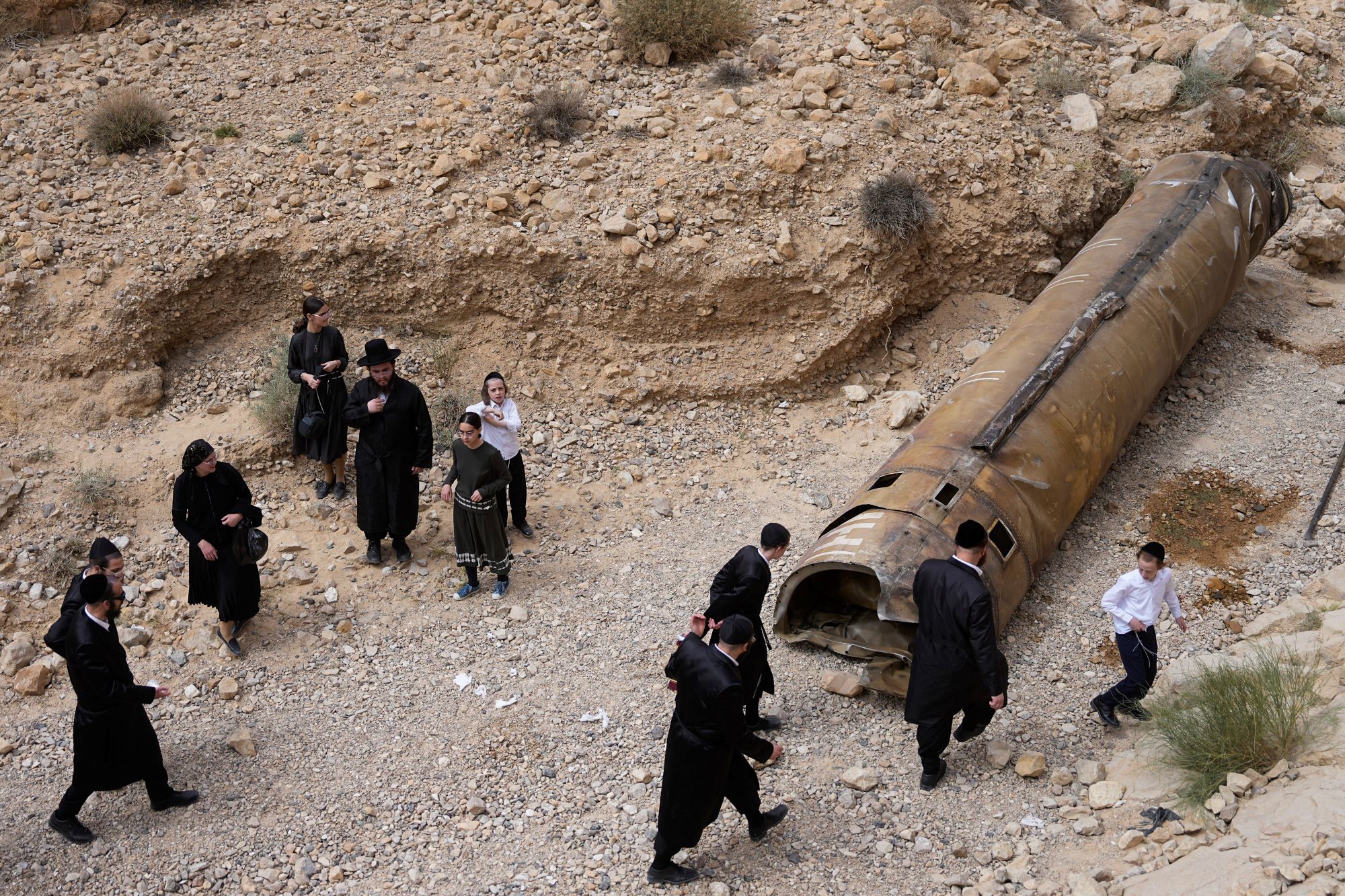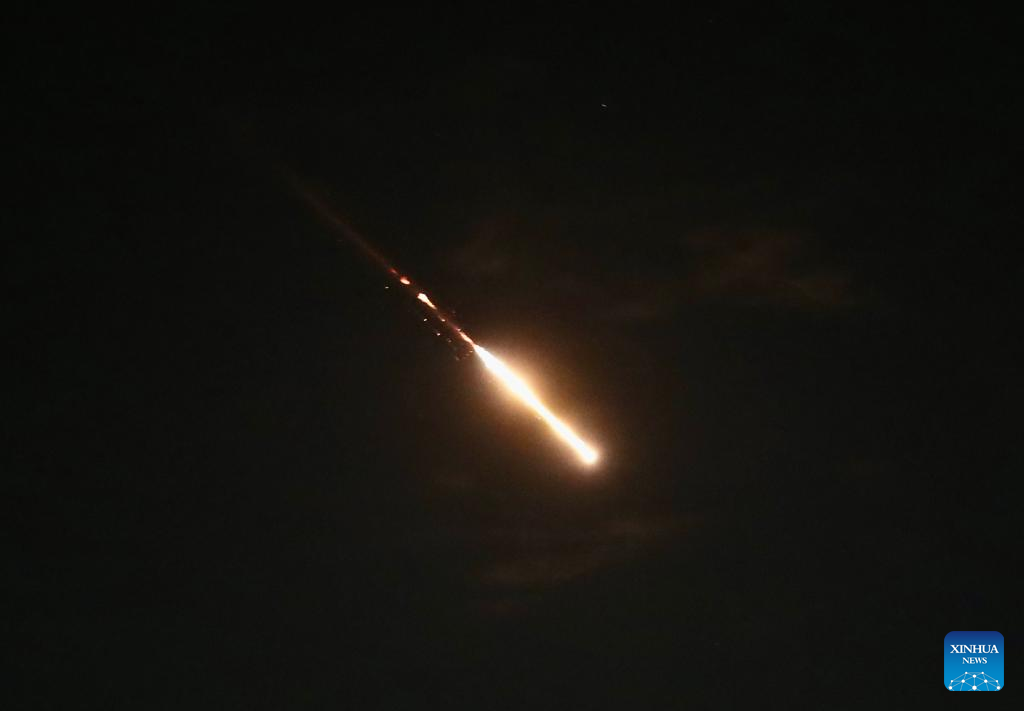
TEHRAN - Iranian officials and analysts are signaling that any significant Israeli action against Iran would trigger a more forceful response than the recent missile strike, as regional tensions escalate amid Israeli operations in Lebanon.
On Oct 1, Iran's Islamic Revolutionary Guard Corps fired a barrage of ballistic missiles at Israel, asserting that the strike was aimed at "strategic" sites and in retaliation for alleged Israeli assassinations of key "resistance" figures, including Hamas leader Ismail Haniyeh and Hezbollah chief Hassan Nasrallah, as well as for Israel's offensives against Lebanese and Palestinian populations.
READ MORE: Biden, Netanyahu speak, Israel vows lethal retaliation against Iran
In response to Iran's attack, Israeli Prime Minister Benjamin Netanyahu stated that Tehran had made a "big mistake", warning of possible consequences. Israeli officials have since hinted at potential military actions targeting Iran's nuclear facilities and energy infrastructure.
On this matter, Rasoul Sanaei-Rad, political deputy of the Political-Ideological Office of Iran's Supreme Leader, in a recent interview with the semi-official Fars news agency, warned Israel against attacking Iran's nuclear facilities and energy infrastructure.

Sanaei-Rad emphasized the importance of all parties adhering to established protocols concerning nuclear security, adding that targeting Iran's nuclear centers could not only alter the strategic balance but may also prompt a shift in Iran's nuclear policies, as suggested by some Iranian politicians.
ALSO READ: Israel says it has killed slain Hezbollah leader's successors
He also "suggested" Israel keep its hands off Iran's oil and gas infrastructure to maintain regional energy security and ensure stable global energy prices.
"If Israel takes further actions against Iran, Tehran's response would be more decisive and crushing, and on a larger scale compared to the previous retaliatory attack," Sanaei-Rad added.
As Israel escalates its operations in Lebanon, both regional and global observers are preparing for a new and more dangerous flashpoint: a potential escalation between Iran and Israel.
Israeli media reported on Wednesday that Netanyahu, along with top officials, reached significant decisions regarding an impending Israeli attack on Iran during a meeting on Tuesday night. The Times of Israel, citing senior sources, indicated that the primary focus of Israeli retaliation would be Iranian military facilities, although this strategy may evolve.
READ MORE: Iran backs ceasefire in Gaza, Lebanon, warns of stronger retaliation against Israel
Mostafa Khoshcheshm, a Tehran-based international affairs analyst, told state-run IRIB TV that any future Iranian action against Israel would likely involve a greater number of ballistic missiles than the previous operation and more advanced missiles would be used.
Regarding potential Israeli targets, Khoshcheshm said, "Israel has three ports, including Eilat on the Red Sea, which is already out of service, Haifa and Ashdod. Their infrastructure, refineries, and gas fields, but not citizens, could be among Iran's targets."
He noted that a successful operation would require sufficient preparations and backup, implying that it would take a "logical amount of time" for Iran to respond to a potential Israeli attack.
ALSO READ: Hamas marks one-year of Oct 7 attack, vows readiness for long-term conflict
Iran's recent airstrike marks its second such attack on Israel this year after it fired hundreds of ballistic missiles and drones at Israel on April 13, prompting an apparent Israeli retaliatory airstrike on an airbase near Isfahan in central Iran on April 19.

Meanwhile, Iranian Foreign Ministry spokesman Esmaeil Baghaei on Wednesday rejected recent accusations by a British security official, who alleged that Tehran was behind "several potentially lethal plots" in Britain.
Baghaei's statement came one day after MI5 Director General Ken McCallum claimed that "since 2022, we have seen plot after plot (by Iran) in Britain, at an unprecedented pace and scale".
READ MORE: Israel starts ground operations in Lebanon as Iran delivers warning
In a statement released by the Iranian Foreign Ministry, Baghaei accused British security institutions of fabricating accusations against Iran as part of an "artificial policy" aimed at creating an enemy and diverting public attention from the British government's role in supporting Israel's "genocide" against Palestinians and its warmongering in the region.
He condemned the "repetition of such claims without any proof over the past two years", and urged British officials to stop making "baseless accusations and raising misleading issues" and instead use their influence to halt Israel's "aggression and crimes".
In his remarks, McCallum said, "Since January 2022, with police partners, we have responded to 20 Iran-backed plots presenting potentially lethal threats to British citizens and UK residents", adding that Iranian state actors made "extensive use of criminals as proxies".


